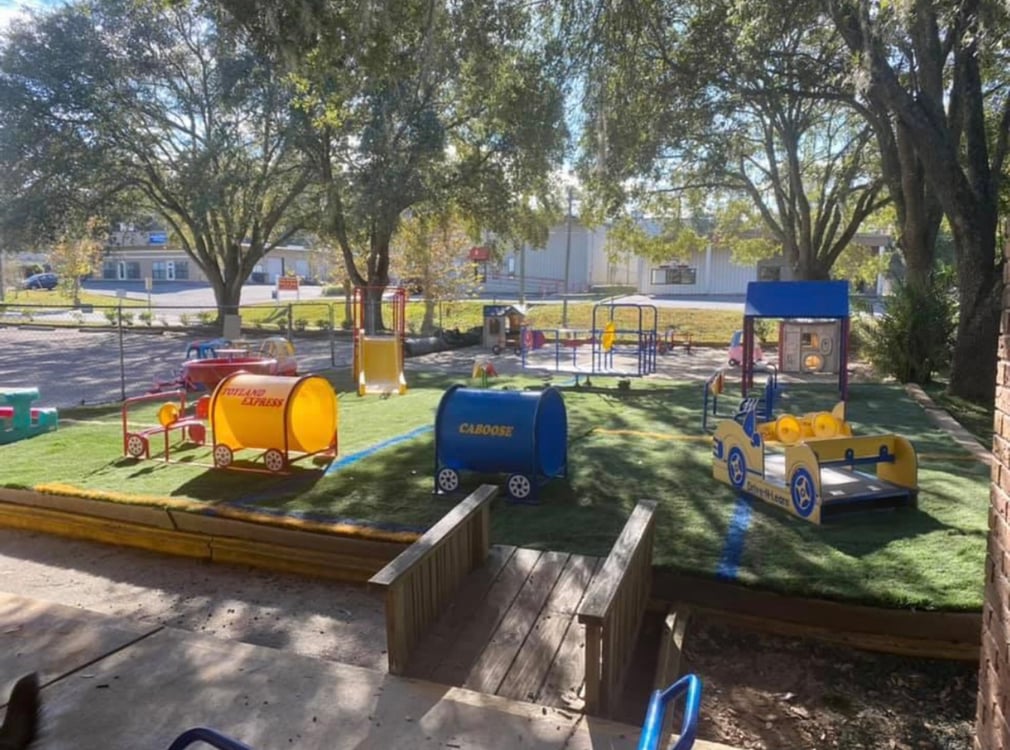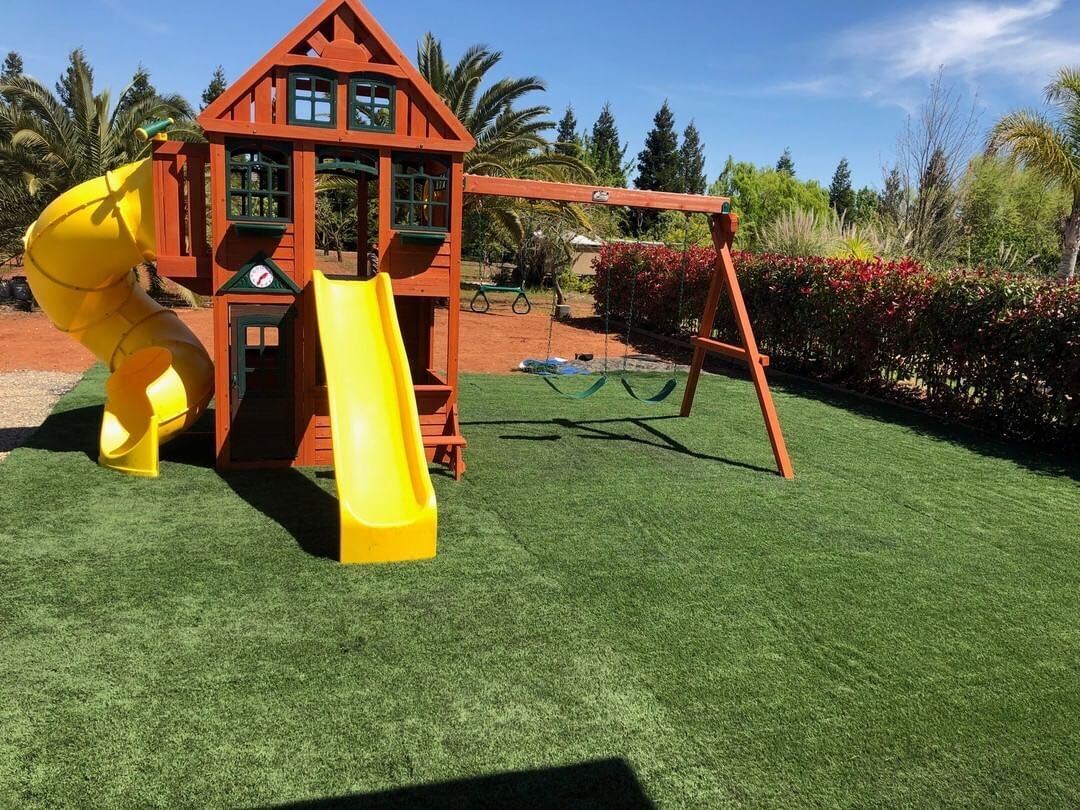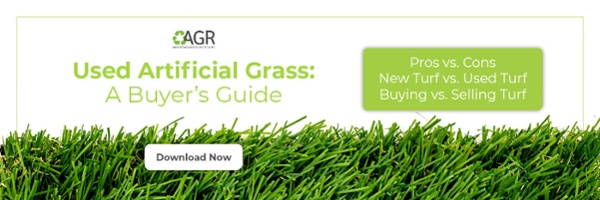You know artificial grass saves water, but did you know there are several benefits of artificial grass for playgrounds?
Finding the right playground surface is essential for creating an aesthetically pleasing space that is also safe. While wood chips and gravel work well, they also lead to scraped knees, and they may not be soft enough to cushion a fall.
Fortunately, you do have an alternative.
Using artificial grass on playground surfaces has several benefits that go far beyond simply looking pretty.

Artificial Grass for Playgrounds
Playgrounds are popular areas and often experience use on a daily basis, especially if the playground is located at a school.
Artificial grass provides exceptional support for this type of high traffic, while also providing enhanced safety and minimal maintenance. In addition, artificial grass can actually reduce dirt and germs, which is a great way to avoid illness.
These are just a few examples, for more information, read the sections below.
Reduce Dirt and Germs
A day at the playground often results in happy but dirty children as loose dirt and debris are kicked up during the children’s play. At schools, cleaning up children after recess can cut into valuable educational time. For parents, the dirt found on a playground is a risk to their child’s health since bacteria and allergens are constantly lurking on natural surfaces. For example, animal waste on natural grass and dirt can contain dangerous diseases such as the Hantavirus that pose a serious risk to children’s health.

Increase Safety and Accessibility
Public playgrounds must meet safety guidelines regarding fall zones, and natural grass just doesn’t cut it. Artificial grass, however, can offer an ATSM Safety rating of up to 12 feet when it is installed over a proper base. If a child does fall, the soft, synthetic blades will be just as soft as natural grass on their skin so they are less likely to experience cuts or broken bones. Artificial grass also provides a smooth surface that does not displace like wood or gravel would do, which means that wheelchairs and other people with mobility needs can access the playground with ease.
Enjoy Minimal Maintenance
Heavy playground traffic generates a lot of wear and tear on surfaces that can cut into a budget. Natural grass requires mowing, fertilization and seeding to maintain that lush, green look. Gravel and wood chips eventually get carried or blown away, leading to a need for regular refills. Pour-in-place surfaces are another option that has greater longevity than natural grass. However, this type of surface still requires replacement after five years, and any repairs done in between are noticeable. Artificial grass lasts up to eight years, and the repairs are naturally blended in so they do not mar the appearance of the playground. It also requires virtually no maintenance other than a quick spray with water to remove dirt.
Teach Conservation to Kids
Today, communities know the importance of teaching children conservation methods early, and there is no better way to start than using eco-friendly materials on their playgrounds. The low-maintenance characteristics of artificial grass mean that less of our natural resources are wasted since there is no watering or weekly mowing. Recycled grass can also be used on playground surfaces to further reinforce the importance of reusing materials that have more than one purpose.
Playground planning requires careful consideration regarding the type of surface that is installed throughout the space. Although natural grass is often preferred due to its aesthetics, it requires too much maintenance and does not provide enough cushioning to soften a child’s fall. Other choices, such as pour-in-place and gravel may be softer, but they are usually unsightly. Fortunately, you can have the best of both worlds by using artificial grass, which allows for almost zero maintenance and creates an environment that will have children and their families flock to the playground.
Artificial Grass Recyclers offers used artificial grass in effort to reduce environmental waste and product price. Call 855-409-4247 to learn more, or connect with us on Facebook, Instagram, and Twitter. Visit our blog for used artificial grass tips.
© Artificial Grass Recyclers
May 12, 2016 7:19:36 AM


